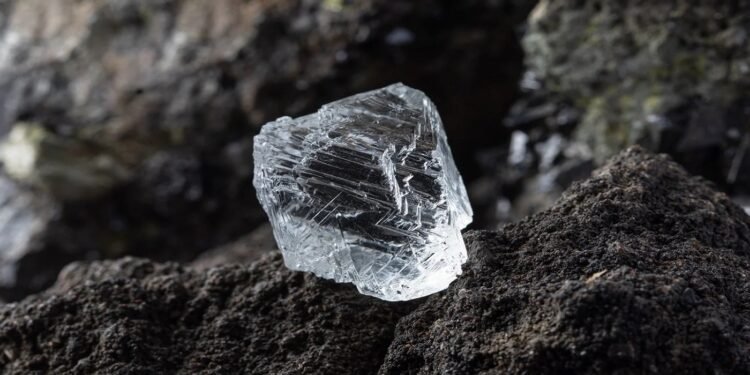- Will U.S. policies empower Africa’s sustainable development, or will they prioritize American interests at the expense of local communities and ecosystems in the next four years?
- Africa’s vast mineral wealth makes the continent a focal point for global economic and strategic competition.
- By encouraging African nations to process and refine their minerals domestically, the U.S. can help Africa can create jobs and enhance economic benefits.
Africa’s natural resources hold a key position in shaping the future of the global mining and energy industry. From critical minerals essential for modern technology to immense energy reserves, the continent is both an opportunity and a battleground for international players.
As Donald Trump assumes a second term as President of the United States in 2025, questions abound regarding his administration’s approach to Africa’s resource wealth. Will U.S. policies empower Africa’s sustainable development, or will they prioritize American interests at the expense of local communities and ecosystems?
Africa’s resource wealth and geopolitical stakes
Africa’s reserves of critical minerals such as cobalt, lithium, and rare earth elements are indispensable for renewable energy technologies, electric vehicles, and advanced electronics. For example, the Democratic Republic of Congo (DRC) alone supplies over 70 per cent of the world’s cobalt. Similarly, Africa is home to substantial oil and gas reserves, particularly in Nigeria, Angola, and Mozambique.
This wealth has made the continent a focal point for global economic and strategic competition. Both China and Russia have significantly increased their influence in Africa’s mining and energy sectors through investment and partnerships, often sidelining Western players.
The Trump administration’s policy decisions will need to navigate this competitive space while addressing local development concerns.
U.S. interests in Africa’s natural resources
Trump’s first term revealed a transactional approach to international relations, emphasizing bilateral deals over multilateral frameworks. If this trend continues, the U.S. may focus on securing direct access to Africa’s critical minerals and energy resources to bolster domestic industries and supply chains.
The Inflation Reduction Act of 2022, though implemented under the Biden administration, underscores the growing U.S. demand for rare earth elements and lithium to advance clean energy goals. Trump’s administration could leverage this demand to negotiate resource deals with African nations, offering financial investments in exchange for resource access.
The risk of exploitation: Lessons from the past
Historically, Africa’s resource extraction has often resulted in environmental degradation, human rights abuses, and limited economic benefits for local communities. Countries such as Nigeria and Angola, despite being resource-rich, continue to grapple with corruption and poor governance fueled by oil wealth.
The Trump administration’s focus on deregulation and prioritization of U.S. business interests could exacerbate such challenges. For instance, if environmental and labour standards are neglected in pursuit of rapid resource extraction, African communities may bear the brunt of negative externalities.
A path toward sustainable development
Despite these risks, the U.S. has an opportunity to support Africa’s sustainable resource management. Key strategies could include:
- Strengthening Governance Frameworks: The U.S. could partner with African governments and institutions like the African Union (AU) to implement transparent policies for resource governance. Programs such as the Extractive Industries Transparency Initiative (EITI) provide a framework for ensuring accountability in resource-rich nations.
- Promoting Local Value Addition: Encouraging African nations to process and refine their minerals domestically can create jobs and enhance economic benefits. For instance, building lithium battery manufacturing plants in Africa rather than exporting raw lithium aligns with both U.S. and African economic goals.
- Investing in Renewable Energy: While fossil fuels remain a critical energy source, the U.S. could support Africa’s transition to renewable energy through partnerships under initiatives like Power Africa. Expanding access to renewable energy not only aligns with global climate goals but also ensures long-term energy security for African nations.
Critical minerals and the clean energy dilemma
As global demand for critical minerals surges, the U.S. must address ethical concerns surrounding their extraction. In the DRC, for example, artisanal mining has been linked to child labour and unsafe working conditions.
Any U.S. engagement must, therefore, prioritize responsible sourcing practices, leveraging initiatives like the Global Battery Alliance to improve supply chain transparency.
By adopting these practices, the Trump administration can position itself as a leader in ethical resource management, contrasting with Chinese and Russian models often criticized for neglecting human rights.
Energy security vs. climate commitments
Africa’s energy sector presents another complex chapter for Trump. While oil and gas remain lucrative for African economies, the global pivot to clean energy puts pressure on resource-dependent countries to diversify.
The U.S. can play a dual role by supporting oil and gas projects in the short term while helping African nations transition to renewable energy. For instance, Trump’s administration could expand the Power Africa initiative to include funding for solar, wind, and geothermal projects, reducing Africa’s reliance on fossil fuels.
Read also: South Africa eyes electric batteries deal in DRC investment talks
Partnerships that work: A win-win approach on Africa’s natural resources
To ensure mutually beneficial outcomes, the Trump administration should prioritize partnerships that address African development priorities. Key focus areas include:
- Infrastructure Development: Investments in transportation, energy, and digital infrastructure can enhance Africa’s capacity to harness its resources effectively.
- Education and Skills Training: Building local expertise in mining and renewable energy technologies can empower African nations to lead their resource industries.
- Leveraging Multilateral Institutions: Working with organizations like the African Development Bank (AfDB) can ensure that U.S. investments align with broader development goals.
Africa’s natural resources hold immense potential to transform the continent’s future. Under Trump’s second term, U.S. policies will play a crucial role in determining whether these resources become a blessing or a burden.
By prioritizing ethical sourcing, promoting local value addition, and supporting renewable energy transitions, the U.S. can foster sustainable development in Africa while securing its strategic interests. However, a failure to address governance challenges and environmental concerns could undermine these efforts, perpetuating the cycle of exploitation that has long plagued Africa’s resource sectors










